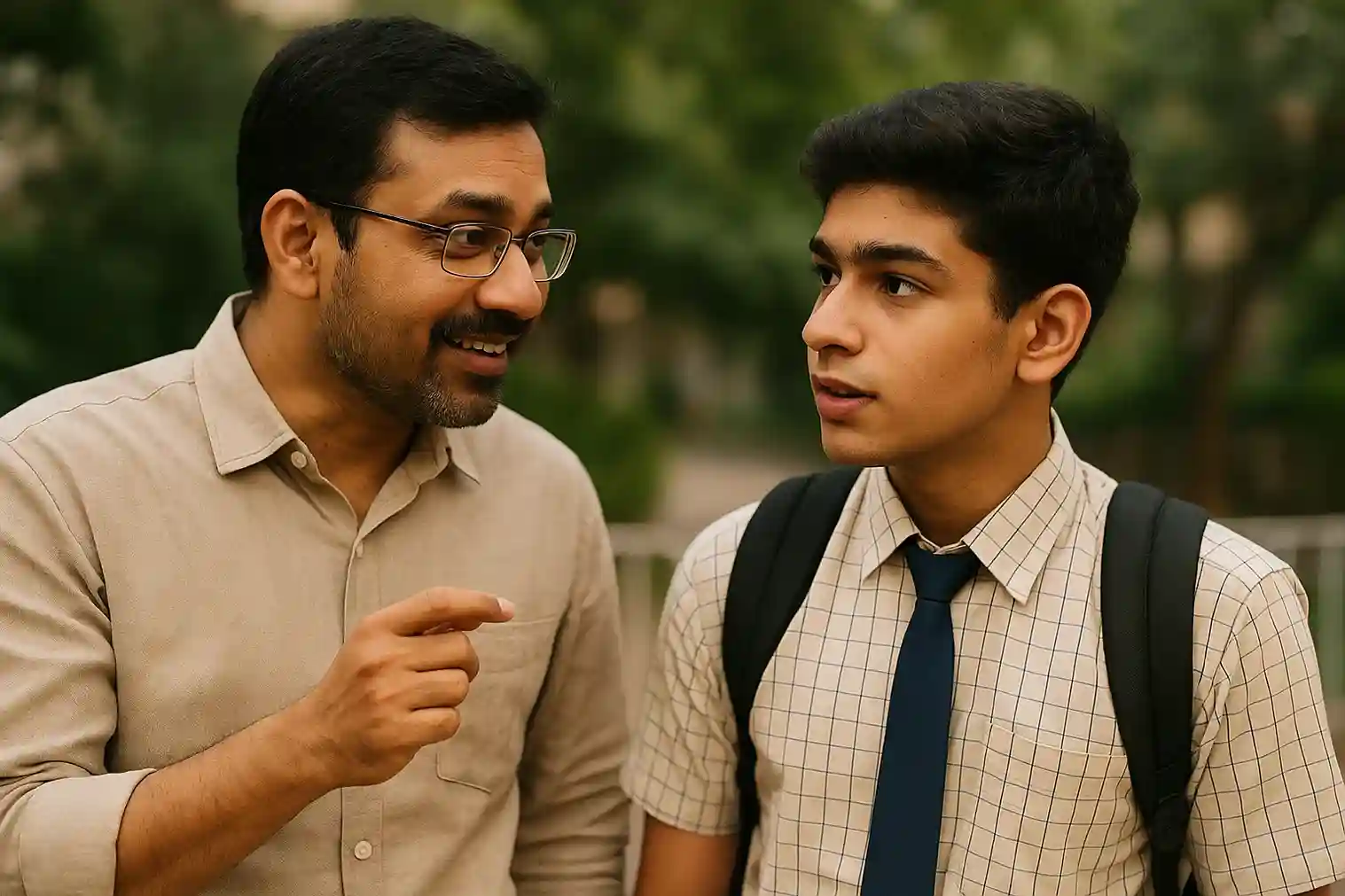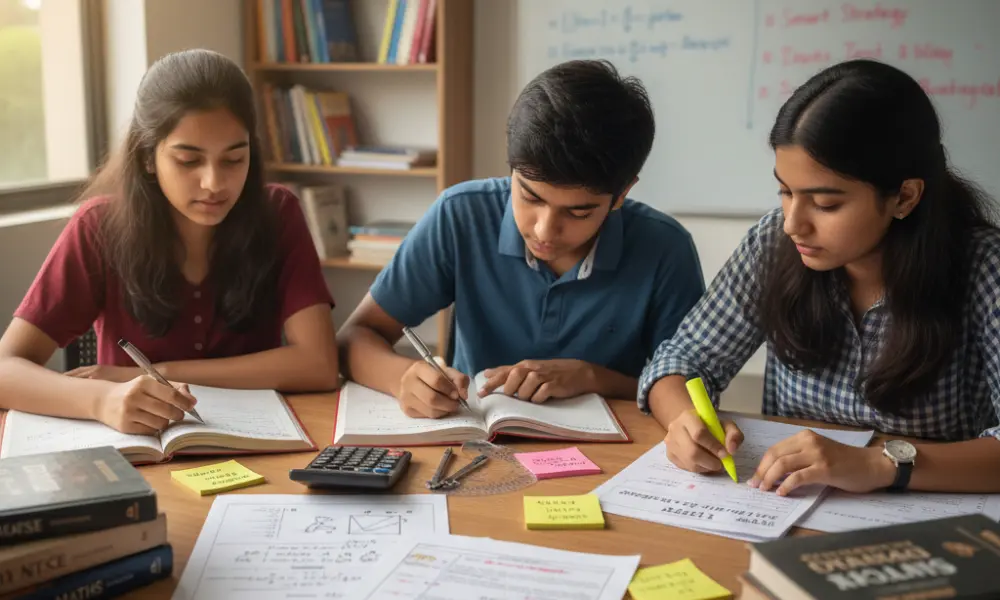Discover how CBSE’s 2025 overhaul will reshape school education from Classes 6 to 12
CBSE’s 2025 curriculum and assessment reforms are here. This blog breaks down what’s changing, how it impacts your child’s academic life, and what students, parents, and schools should do to prepare effectively.

CBSE has made important changes to its academic structure for the year 2024-25 as a part of the wider approach of the National Education Policy (NEP) 2020. This change marks a transformative approach concerning the teaching, learning, and preparation strategies for the students. This is not just an update to the textbooks or the questions asked in the exams. Rather, it is a comprehensive redesign of the entire learning structure and system that modifies the teaching and assessment frameworks for all CBSE schools in India.
The main focus of this change is NEP 2020, which intends to make the Indian education system more focused on the competencies of the learners, an inclusivity of all sections of the society, and the application of the learnt skills. With rapid shifts in the educational landscape due to technology, globalization, and new career opportunities, it is imperative for the Indian education system to equip the learners with more than just rote memorization. This is exactly what has been aimed for with the CBSE revised pattern, which seeks to foster imagination, higher-order thinking skills, and effective and efficient real-life problem-solving skills in students from Class 6 to Class 12.
The most apparent change is the redesign of the curriculum in all subjects. Take mathematics, for example. It used to revolve around rote memorization of formulas. It is now centered on reasoning and understanding concepts, so students utilize math in their everyday tasks like budgeting, interpreting data, and measuring. This helps students reason and appreciate the relationship between abstract concepts and real-life problems. It also helps enhance their understanding of mathematics.
Under the new CBSE structure, science is taught with a greater emphasis on learning through doing. The application of theory to practice is more intense than ever. Students learn about important problems like climate change, sustainable development, and renewable energy; thus, they apply science knowledge to global problems. This change is not only more interesting but also helps in nurturing the scientific attitude and scientific curiosity.
The field of social science has profoundly changed, too. Instead of rote learning of historical dates, students use simulations and case studies to analyze different societal problems. The objective is to make them more participative and civically engaged. Learners are able to analyze policies, comprehend governance, and discuss social justice issues. The integration of geography, history, and political science has become more interdisciplinary and dialogue-oriented.
The instruction of English, Hindi, and regional languages has also changed. Students are no longer assessed only on grammar and textbook answers; they are evaluated on listening, speaking, reading, and writing. In oral examinations, students are answering questions that require them to understand the content rather than use surface rote recall. These changes foster the development of effective communication skills, which are vital across all academic and professional realms.
The introduction of skill-based electives like coding, artificial intelligence, and digital literacy in the middle grades is a noteworthy shift in the CBSE curriculum. These subjects aim to equip students with advanced technologies and prepare them for a digitally driven world early on. Moreover, these changes demonstrate that CBSE is willing to adapt education for the future while expanding interdisciplinary career pathways for learners.
Selection and organization of evaluations undergo significant alterations alongside modifications to the curriculum. The rigid evaluation system dominated by summative assessments and repetitive information recall is now being replaced with more flexible, ongoing, and varied evaluation mechanisms. This change is an improvement by understanding that students are unique and learn differently.
The blend of new evaluations includes a variety of assessment multi-choice questions, short and long answer sections, oral presentations, and project-based work. The goal is to assess a student’s understanding and application of information, heuristic skills, and creativity, as opposed to rote recall. Instructional policies now guide schools to compile extensive portfolios for each learner, capturing their work and incremental tests, assignments, collaborative work, and presentations.
The new allocation system adjusts to having 20 percent for ongoing assessments averaged snapshots over the course of the year, 30 percent for practical assignments, internal assessments, and the remaining 50 percent for an end-of-year assessment. This system invites students to engage more deeply with the material as the burden of a single finals is alleviated. Additionally, the inclusion of project-based assessments promotes teamwork, creative problem solving, and inquiry.
Perhaps one of the most significant changes has been the revision of the format of board examinations for Class X and Class XII students. With an intention to move away from the high-pressure “one-and-done” exam system, the CBSE has implemented a shift towards a competency-based assessment system. Now, students will no longer face case-based questions, problem-solving tasks, or questions requiring the application of higher-order thinking skills (often referred to as ‘bloom’s taxonomy questioning’). Such questions require critical thinking, including the ability to analyze and apply knowledge in new, often unpredictable, contexts.
Change entails a greater emphasis on internal evaluations such as class participation, portfolios, and other formative tasks. There are new school-based evaluations aimed at accurately capturing the skills possessed by students, which in turn makes assessment and evaluation a more holistic process and helps to relieve anxiety. In a related announcement, CBSE noted that in class XII certificate examinations, students will be permitted to select some of the questions from the set offered which will enable them to showcase their strengths. This accommodates a range of learning preferences thereby reducing the stress students often associate with examinations.
Adopting these changes may be daunting for parents at first but it offers a chance to get more meaningfully involved in their child’s education. Perhaps the best way parents can assist their children is to move the conversation from grades to learning outcomes. Instead of asking, “What did you score?”, parents can now pose the more constructive, “What did you learn today?”. This adjustment is more likely to spark joy and a sustained interest towards academia.
Parents can further assist by encouraging fundamental elements in the child’s, including the child’s home learning environment. This can involve the creation of a dedicated, quiet, and well-lit space for study, a consistent routine, and availability of the internet. Participation in school activities, open house, parents-teacher meetings, and orientation sessions allow parents to stay informed and proactively assist their children during the transition.
The effective changing of the CBSE pattern rests heavily with the schools and teachers. Understanding this concern, CBSE has started conducting educator’s workshops aimed at updating teachers on the new CBSE’s strategy and assessment changes. In addition, training on the use of digital tools and blended teaching is being offered, which aims to improve teaching and learning during face-to-face and virtual interactions.
To maintain the same standard and avoid discrepancies in quality, CBSE has developed a phased rollout approach. Fully operational urban schools are projected to come online by mid-2025. In contrast, government and rural schools will progress following a phased schedule, which may extend to a 2026 completion date. This set timeline ensures that improvements to school infrastructure, the training of educators, and planning of school operations can happen in a timely and uninterrupted manner.
In addition to the school changes that need to be implemented, students must also revise and adapt their learning techniques. In addition to changing their approach to studying to a more evaluative and analytical approach, students are now advised to utilise more hands-on and active learning strategies like the use of mind maps, flowcharts, and flashcards. Overall, the use of these tools helps in visualizing the topic at hand and enhances the capacity to retain information, especially in more complex subjects and topics.
Access Free Chapter Flashcards Sample on Edzy: Class 10 Mathematics | Real Numbers | Flashcards
An important strategy to adopt is practicing with mock tests and samples structured around the new question types. Edzy is one example of a platform that combines interactive learning and quizzes with the CBSE syllabus. Such resources not only foster motivation but also improve understanding and performance.
In addition, students should work on developing self-assessment and self-reflection. Gaining self understanding through reflection combines identifying gaps to improve, and seeking feedback. Reading beyond the textbook, watching educational videos, and joining group discussions can also add value and improve the overall learning experience.
Concerning the new CBSE pattern, it is critical to highlight that the intention is not to add complexity to the curriculum, but to enhance its structure and framework. The focus has shifted from breadth to depth, memorization to understanding, and repetition to authentic application. Students embracing these changes with the right attitude will not only excel academically, but will also cultivate critical 21st century life skills that are essential in the current global landscape.
The 2025 CBSE pattern reforms continue to show an evolution in education philosophy by taking a more holistic approach with the learner as the focus of the process. The attempts to improve the overall educational experience by prioritizing analytical skills, creativity, and their importance to the world are welcomed. Despite the challenges the shift may bring, it is equally beneficial in bringing unprecedented opportunities for students, parents, and educators.
The revised CBSE framework ought to be approached in a different manner. It is not more difficult in its content, however, it is more intellectually sound in its teaching approach. The focus now is to stimulate active thinking rather than the passive retention of information. These changes enhance the education framework aimed at developing agile, active, multifaceted, and self-assured learners. This shift can be embraced as a constructive stride toward optimizing educational and developmental milestones, provided there is collaboration and readiness from everyone involved — learners, guardians, instructors, and educational institutions. India's education landscape can improve drastically, and provided there is thoughtful consideration and strategy involved, all students could benefit from the updated structure.

What Class 10 CBSE Students Should Know About Subject Choices After Boards
Navigating subject choices after Class 10 for a brighter future

How to Prepare for Olympiads and NTSE Alongside CBSE Exams
Mastering the balance between CBSE and competitive exams

The Ultimate Roadmap for Students Who Want to Study Abroad After CBSE
A comprehensive guide for CBSE students aspiring to study abroad.

How CBSE Skill-Based Subjects Are Shaping Future-Ready Students
Exploring the impact of CBSE skill-based subjects on student readiness for the future.